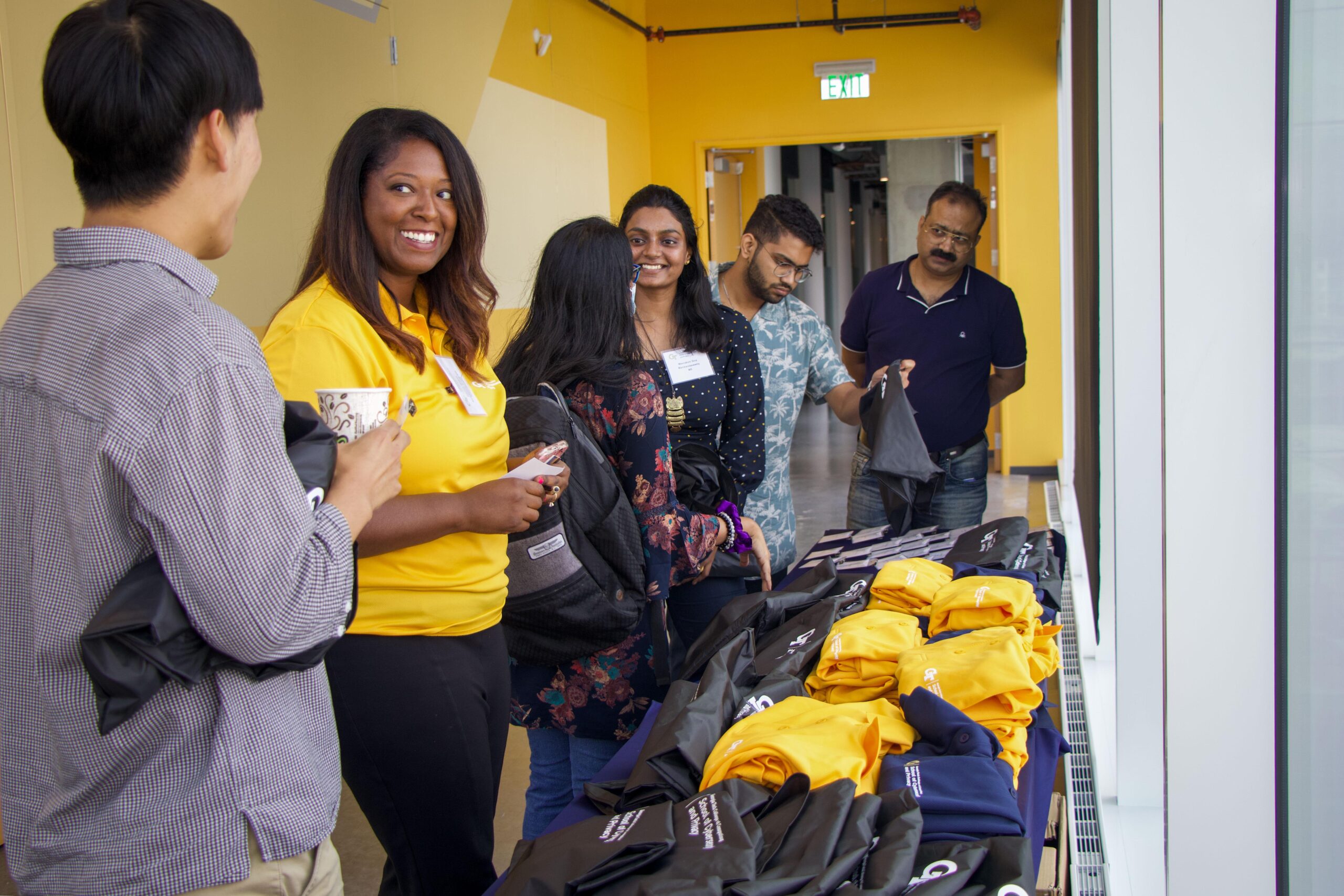Growing NYC’s Civic Tech Ecosystem
from the PIT UNiverse Newsletter
Civic Engagement
April, 2024
by Noel Hidalgo, Jazzy Smith and Katie Cumiskey
In 2008, a group of civic hackers in New York City started a meetup group. Its goal was to educate and activate the next generation of public interest technologists.
Sixteen years later, BetaNYC is a multi-pronged collaboration helping New York City government and communities to better work with and for New Yorkers, while fostering a new generation of civic leaders who can leverage data and technology to educate and serve their communities.
What is Public Interest Technology?
5 Keys to Institutionalizing PIT
What is PIT-UN?
Like any civic engagement effort, our success comes not from any one person or group, but from strong relationships – in our case, with the City University of New York (CUNY) and the CUNY PIT Lab, with local nonprofits and community organizations, and with the City’s agencies and elected officials. We have become partners, builders, teachers, mentors, and organizers of New York’s public interest tech (PIT) society.
While some aspects of our story are specific to New York, the lessons and examples shared here can be adapted by any group of people looking to leverage technology to solve local problems and improve the well-being of their communities.
Subscribe to the PIT UNiverse Newsletter
The Civic Innovation Fellowship
Our goals center on improving informed decision-making, closing the data and digital literacy gap and growing the City’s civic tech talent pipeline and capacity.
Our Civic Innovation Fellowship is a cornerstone of this work. Housed in the Manhattan Borough President’s Office, a group of fellows selected from the CUNY student body learn about the City’s history and how our good government movement developed, while also learning a suite of digital communication and analytical tools, specifically how to map public spaces using in-person site surveys and publicly available data.
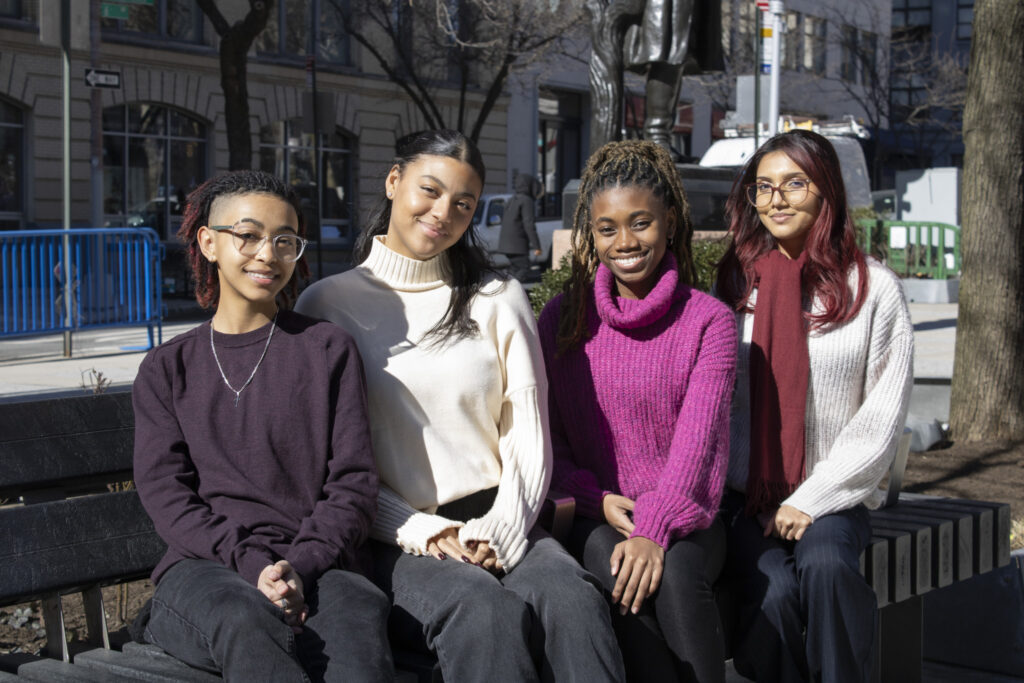
Fellows develop valuable leadership and communication skills through working on real-world projects with elected officials and community-based organizations. Upon graduation, some are hired as BetaNYC Associates, and get the chance to further develop their PIT skills, while tapping into a professional community that shares job opportunities and offers professional development and events like the NYC School of Data and NYC Open Data Week.
Our current ongoing project, Mapping for Equity, addresses particular civic challenges like wheelchair and playground accessibility in public parks, while simultaneously contributing to a longer-term goal: building a comprehensive public space data playbook to help community organizations and individuals collect, verify, and analyze public data.
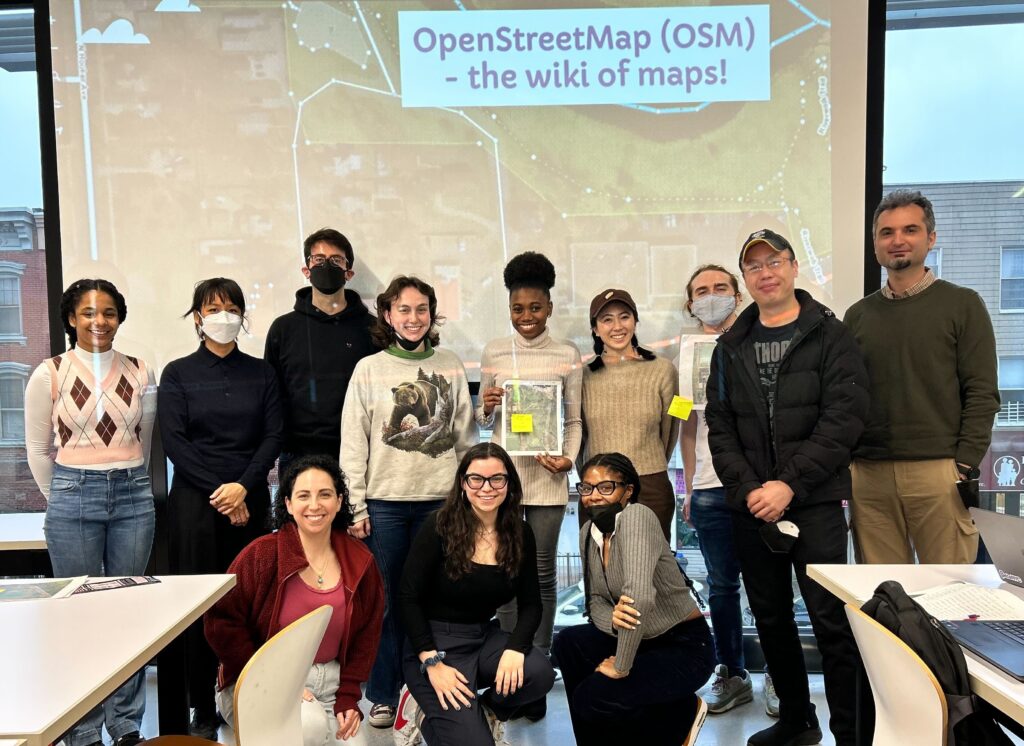
Economic development/gentrification and the COVID-19 pandemic have elevated the need for equitable public space. For the last few years, Mapping for Equity has worked with City Council Member Jen Guitiérrez and North Brooklyn Parks Alliance to have a better understanding of our parks, playgrounds, and public spaces at New York City Housing Authority developments. During the second half of the program term, fellows turn around and teach the skills they’ve learned to their local community board, their peers, the public, and local middle and high school students.
To us, doing civic tech with a public interest technology lens means that we must go beyond merely making data sets available; they must be usable, and community members must have avenues to develop their own data literacy.
Growing Diversity and Accessible Civic Tools
By the end of 2024, the Civic Innovation Fellowship will have trained and employed over 100 CUNY students in public interest technology, civic technology, open data, geographic information systems (GIS), as well as service design fundamentals.
Diversifying the technology sector is a core goal of PIT, and these students represent a broad spectrum of identities, communities, interests, and talents. Over 80% have identified as BIPOC and all have come from the five boroughs of New York City. Around 33% of past fellows have pursued computer science or computer system majors, while others have pursued majors in psychology, economics, criminology, business administration, and many more. 21% of the fellows have gone on to pursue graduate degrees. Around 23% of the fellows have worked in a tech/data-related role and 23% have worked for a government agency. Our fellows reflect the unique diversity that is the CUNY student body.
Our current fellowship program has already made an impact in local government and civic participation. Our fellows were instrumental in researching technology and data gaps within NYC Community Boards. These data led to the creation of Boundaries Map, a simple map overlaying political and administrative districts; Community Board Database, an AirTable template for community boards to track discretionary actions; and BoardStat, a comprehensive NYC311 service request dashboard for Borough Presidents and community boards.
Most importantly, our fellows witnessed how their work led to improvements and revisions to city government. Our research has a direct throughline to the 2018 Charter Revision Commission, the Commission’s suggestions for more resources for Community Boards, and the subsequent adoption of a charter amendment that led to the creation of the Civic Engagement Commission.
Fellows also helped us identify a need among NYC residents and organizations for ongoing, on-demand data support. In response, we developed the Research and Data Requests portal (RADAR), through which any community organization, resident, or elected official can submit requests for research, technology assistance, or support related to open data. Our associates – former fellows and graduate students – address pressing needs and help others build their data and analytical skills.
From Fellowships to Apprenticeships
Now, we’re seeking to build on the fellowship to create a multi-year apprenticeship program that can reach a wider range of CUNY students. We plan to develop co-curricular programming with CUNY faculty and PIT-related program directors across the university to enhance interdisciplinary training, help students build professional portfolios and offer access to student clubs and publications.
Core to any adept public interest technologist, designer, or analyst is the ability to leverage the power of community and communication. Through the expanded apprenticeship program, we hope to cultivate an understanding that PIT practitioners are a critical link in a long chain of collaboration. These PIT apprentices will come into the program with their own stories and experiences that often drive their participation. We will grow their skills and capabilities to translate that passion and commitment into a unique approach for civic engagement that will often empower ignored and underserved communities throughout the city. Together, we will learn how to better use public interest technology for the betterment of our shared spaces, while fostering a new generation of civic servants.
We want our fellows and associates to work in solidarity, honoring the past, being firmly rooted in the present, and always looking towards the future.
If successful, our work will join the public interest technology movement that is afoot to fundamentally change local government culture at all levels by fostering open, problem-focused, stakeholder-minded technology development practices within NGOs, Agencies, Borough President offices, Council Offices, and Community Boards. By bridging academia, technology and community engagement, we aim to cultivate a generation of leaders committed to enhancing public welfare and advancing equitable governance. The ultimate result will strengthen hyper-local relationships across the US while facilitating a healthy integration of technology and data literacy into the fabric of local governance.
If you’d like to learn more, here are a few ways to connect with us:
- Join one of our monthly Open Data Ambassadors classes, to learn how you can teach open data to your community
- Reach out to pit@beta.nyc if you’re interested in helping us develop our new apprenticeship program or our civic mapping curriculum.
- Meet the BetaNYC Fellowship team at the 2024 Open Street Map annual conference, June 6-8 in Salt Lake City, Utah, where they’ll be presenting on the Mapping for Equity campaign.

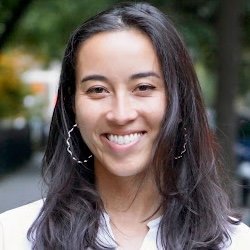
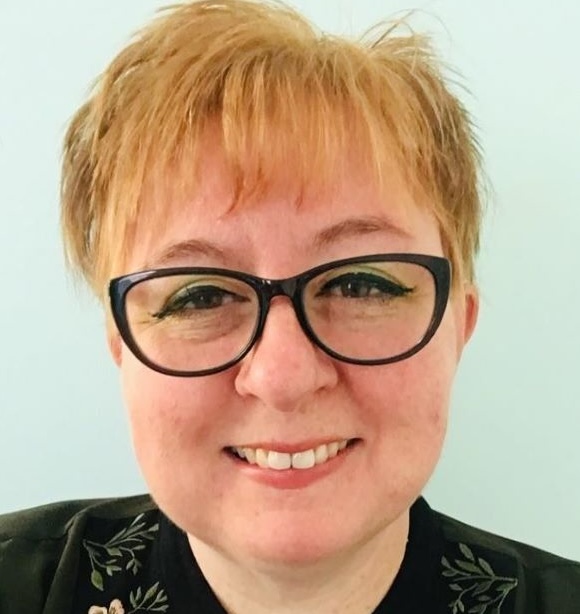
Noel Hidalgo is founder and executive director of BetaNYC, a nonprofit that helps all New Yorkers access information and use technology for the public interest. Standing at the crossroads of technology, government, community, and impact he believes in participatory communities and uses technology to improve people’s lives. He is currently an affiliate at the Data & Society Research Institution.
Jazzy Smith is the Civic Innovation Fellowship director at BetaNYC, working to demystify open data and make it accessible to all New Yorkers. As a teacher, community builder and artist, she has a wealth of institutional knowledge, from the inner workings of academia, to the K-12 education system, to nonprofits, and the art world.
Rev. Dr. Kathleen (Katie) M. Cumiskey is Professor of Psychology and Women’s, Gender and Sexuality Studies at the College of Staten Island and the CUNY Graduate Center. Known for her research on mobile media, her work reflects the evolving relationship between technology and profound human experiences. A founding member of the Public Interest Technology University Network, Dr. Cumiskey is the director of the CUNY PIT Lab.
Related Posts
Call for Papers on Public Interest Technology The Journal of Global Integrated STEM Submissions …
Learn how public interest technologists are supporting local elections, while informing wider debates about voting technology.
Over 150 students gathered at the Tech for Change Hackathon to build community and build skills through hands-on workshops.


